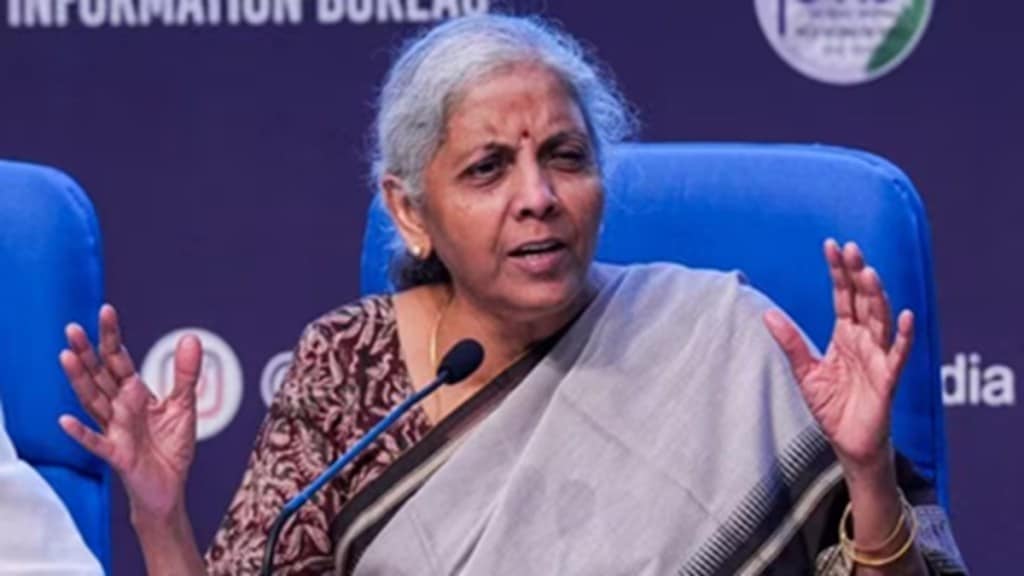Finance minister Nirmala Sitharaman on Tuesday pitched for reforms of the international financial architecture including multilateral development bank (MDB) reforms and credit rating systems.
These reforms are necessary in the interest of inclusivity and and equity, she noted.
Speaking at the 4th International Conference on Financing for Development (FFD4) at Seville, Spain, she also supported the call for a reversal in the decline of Official Development Assistance (ODA), and urged developed countries for enhancing climate finance.
She said that the climate finance should be predictable, accessible, and concessional — particularly for adaptation in vulnerable countries.
“MDB lending must be aligned with long-term development goals and backed by robust monitoring frameworks to ensure that funds are used as intended,” she said.
In its report, the expert group set up by the G20 Indian Presidency has estimated an additional spending requirement of $3 trillion per year by 2030 to address urgent global challenges and SDGs. Of the $3 trillion annual requirement, $2 trillion could come from domestic resource mobilization while the remaining $1 trillion in additional external financing. Of the $1 trillion in external financing, more than half could come from private financing, and the rest from official financing including MDBs.
Pointing out that sovereign debt has become a structural barrier to inclusive and sustainable growth for many countries, she said, the Global Sovereign Debt Roundtable, launched during India’s G20 Presidency, has played a pivotal role in enhancing debt transparency and comparability of treatment in debt restructuring.
Going forward, she said, effective implementation of the G20 Common Framework coupled with preventative debt management, is essential.
India has been critical of global rating agencies for their approach and methods for ratings of developing countries like India. In December 2023, finance ministry economists had questioned the three big global rating agencies for keeping India’s rating static at the lowest investment grade for the last 15 years despite it moving up the ladder from 12th largest to become fifth largest economy. They had said the rating agencies’ methodologies were biased against emerging market developing economies.
India also supported international cooperation to modernize tax systems and curb illicit financial flows.
India’s comprehensive tax reforms and digital transformation in tax administration have increased revenue and reduced compliance costs, she said.
Observing that India has consistently placed people at the centre of its development strategy, she said, we have lifted 250 million people out of multi-dimensional poverty, and empowered communities through inclusive Digital Public Infrastructure (DPI) through targeted policy interventions.
However, for robust global growth, national efforts must be complemented by an enabling international environment.
With many SDG targets off track and a financing gap exceeding U$4 trillion annually for developing countries, she said, there is a need for urgent and transformative action.
She underlined the need for the importance of a comprehensive, equitable, and development-oriented global financing framework — one that respects country circumstances, preserves policy space, and delivers on the promise of sustainable development for all.
